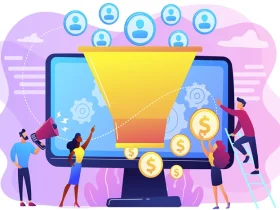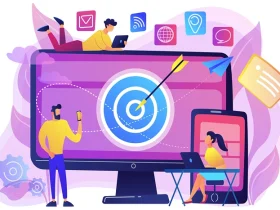
Key Methods
- Content Marketing
- Creating valuable, informative content (blog posts, videos, guides, whitepapers) that engages your target audience.
- Establish your brand as a thought leader and nurtures relationships with potential customers.
- Search Engine Optimization (SEO)
- Optimizing your website and content for search engines to improve your ranking on relevant search queries.
- Drives organic traffic and ensures that potential customers find your website when looking for your product or service.
- Pay-Per-Click (PPC) Advertising
- Running paid ads on search engines or social media platforms.
- Targets specific keywords or demographics, ensuring your message reaches the right audience at the right time.
- Directly measurable ROI through clicks and conversions.
- Social Media Ads
- Paid advertising on platforms like Facebook, Instagram, LinkedIn, and Twitter, allowing precise demographic targeting.
- Helps build brand awareness, drive traffic, and generate leads.
- Customizable ad formats to suit different business needs.
- Lead Magnets
- Offering valuable resources (e.g., eBooks, templates, checklists) in exchange for a visitor’s contact information.
- A highly effective way to grow email lists and nurture leads with targeted follow-up campaigns.
- Gated Content
- Offering exclusive, high-value content (e.g., case studies, research reports) is only available after filling out a lead capture form.
- Generates highly qualified leads who are willing to engage with your brand in exchange for valuable insights.
Advantages
- Scalability: Digital methods allow you to scale campaigns globally, reaching a larger, more diverse audience without the limitations of geographic boundaries.
- Targeting: Advanced tools like social media ad platforms and SEO let you specifically target potential customers based on interests, behavior, location, or search intent.
- Cost-Efficiency: Digital lead generation can often be more affordable than traditional methods, especially considering the global reach and automation possibilities.
- Measurable ROI: Every click, interaction, or conversion can be tracked in real-time, making it easier to measure the performance and effectiveness of campaigns.
- Personalization: Automated tools and platforms allow for more personalized outreach, such as email marketing sequences and dynamic website content that adapts to user behavior.
- Automation: Many digital tools allow businesses to automate processes, such as email follow-ups or lead nurturing campaigns, which save time and improve efficiency.
Challenges
- Complexity: Digital lead generation requires a deep understanding of various tools, platforms, and strategies, which can be overwhelming for newcomers.
- Competition: With ease of entry into the digital space, businesses face fierce competition, making it harder to stand out without a well-executed strategy.
- Ad Fatigue: Overuse of digital ads can lead to ad fatigue, where potential leads become blind to your messages or annoyed by constant exposure.
- Dependence on Technology: Digital strategies rely heavily on the proper functioning of software, platforms, and analytics, making technical failures or mismanagement significant risks.




